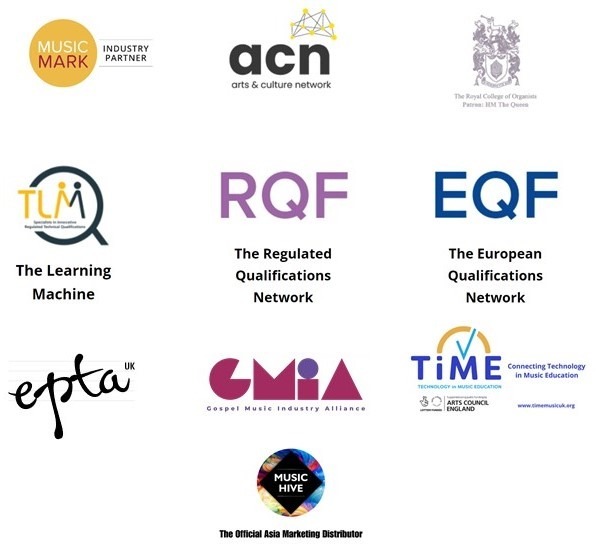Ẹ̀kọ́ Ìṣẹ̀dálẹ̀ Gígbòòrò & Awọn Ilọsi Ẹkọ ti ode oni fun Awọn ibudo Orin
Eyikeyi ile-iwe tabi olukọ orin nilo lati ṣe ipa ọna gbogbo, ilana pipe lati le ṣe agbekalẹ 'gbogbo eniyan' naa. Eyi kan si awọn akọrin ti o dagbasoke ti gbogbo ọjọ-ori ati awọn ipele ati pe ọna pipe jẹ pupọ ni ipilẹ ti NPME (Ile-ede UK “Eto Orilẹ-ede fun Ẹkọ Orin”) pẹlu ọrọ naa “ẹda” jẹ olokiki pataki kan 'tuntun' ọrọ.
Ẹ̀kọ́ Ìṣẹ̀dálẹ̀ Gígbòòrò & Awọn Ilọsi Ẹkọ ti ode oni fun Awọn ibudo Orin
Eyikeyi ile-iwe tabi olukọ orin nilo lati ṣe ipa ọna gbogbo, ilana pipe lati le ṣe agbekalẹ 'gbogbo eniyan' naa. Eyi kan si awọn akọrin ti o dagbasoke ti gbogbo ọjọ-ori ati awọn ipele ati pe ọna pipe jẹ pupọ ni ipilẹ ti NPME (Ile-ede UK “Eto Orilẹ-ede fun Ẹkọ Orin”) pẹlu ọrọ naa “ẹda” jẹ olokiki pataki kan 'tuntun' ọrọ.

Ṣiṣẹda ni Ẹkọ Orin & Awọn ile-iwe Orin
Ọrọ kan wa ti “daakọ mi”, iwe-ẹkọ ara awoṣe awoṣe jade nibẹ. Youtube jẹ apẹẹrẹ akọkọ pẹlu awọn fidio ti awọn ifihan ti eniyan farawe. Awọn ọdọ, ni pataki, nifẹ lati farawe ati daakọ awọn eniyan youtube ayanfẹ wọn ati, nitorinaa, wọn jẹ iwunilori (ọpọlọpọ awọn eto orin TV ṣe igbega awọn akọrin “n dun bi” akọrin atilẹba). Ni ọpọlọpọ awọn ọna, afarawe jẹ aṣayan “rọrun” ati pẹlu ibeere naa:
"Ṣe Mo gba ọtun?".
Awọn olukọ orin ti o dara koju eyi ati ifọkansi lati mu ẹni-kọọkan ti ọmọ ile-iwe kọọkan pọ si. Ero ni fun gbogbo eniyan lati di olorin ni ẹtọ tirẹ. Awọn ibeere ni bayi:
"Ṣe Mo gba itumọ mi ti iwa naa?",
"Ṣe Mo fi ere ti ara mi sori rẹ?",
"Ṣe o le sọ pe Mo ti ṣe awọn itumọ iṣẹ ọna ti ara mi ni ọna ti Mo ṣere?".
Awọn ilana fun Ṣiṣẹda fun Orin ni Awọn ile-iwe
Jẹ ki a wo awoṣe fun kikọ ẹkọ ti o ṣiṣẹ fun awọn eniyan kọọkan ni awọn ẹkọ 1-1 ati awọn yara ikawe, fun awọn olubere ati awọn ọmọ ile-iwe giga (pẹlu awọn iwe-ẹkọ giga to ti ni ilọsiwaju):
(1) Kọ eti ni akọkọ, mojuto si Nfeti ati Internalising. If we hear and imagine sounds in our heads then we become quality musicians. Some musicians read and perform very well without ‘hearing’ first and they tend to lack that final finesse. Other musicians only play by ear and memory and find reading a challenge; frequently they have more flair if their memories and technique are firmly established. There are many ways to do this. I prefer solfège and activities such as singing chord roots, singing other chord notes, singing one part while playing another, playing specific notes and ‘inner hearing’ others and so on. Training the ‘inner ear’ enhances aural imagination. Orin seése ni pẹlu ti ndun lẹwa ati ki o mu bi awọn iṣẹ adayeba lori ohun elo dun.
(2) Take key concepts, phrases, chord progressions, techniques, scales etc and improvise upon them. Why? Because playing fluently involves mastery and in-depth understanding of the elements within a piece. Individual stylisation goes beyond mastery and requires creativity and imagination. Ṣiṣẹda ati Idagbasoke yẹ ki o jẹ pataki si gbogbo ṣiṣe orin ti o nilari.
(3) Gba ìtumọ̀ níyànjú. Awọn ọna pupọ lo wa lati ṣe eyi fun ọpọlọpọ awọn aṣa oriṣiriṣi. Ni ọsẹ yii nikan, Mo n lo ẹya ti o rọrun ti Claire de Lune pẹlu ọdọmọkunrin kan ati pe a wo itumọ gbogbo awọn orin papọ (dara dara lati ṣe - Mo ya mi lẹnu pupọ, o ni itumọ “iwa ti itan naa” nla kan ) ati pe eyi yara yipada ni ọna ti o tẹ awọn bọtini piano ati bii o ṣe ṣe apẹrẹ awọn gbolohun ọrọ naa. Mo koju akọrin ipele agbaye lati ṣe orin kanna fun awọn iṣẹlẹ oriṣiriṣi mẹta: isinku, ayẹyẹ ati iṣẹlẹ ifẹ. O jẹ iyanilenu gaan lati jiroro bawo ni yoo ṣe ṣe awọn iyatọ ohun ati itumọ fun awọn iṣẹlẹ mẹta wọnyi. Nibo ni awọn akọrin agbejade yoo ṣe ọṣọ pẹlu iwọn pentatonic ati nibo ni wọn yoo lo akọsilẹ blues kan? Nibo ni wọn yoo ṣẹda dissonance pẹlu isokan ati bawo ni yoo ṣe le to? Kini ọrọ abẹlẹ lẹhin ọrọ naa, “ aniyan” lati oju iwo ti ohun kikọ? Eyin mejeeji ni bayi Ṣiṣe ati ibaraẹnisọrọ.
(4) Holistic - awọn aṣa diẹ sii ati awọn ọna itumọ ti o yan, diẹ sii ni o jẹ mejeeji ṣiṣe ati ki o gan finely Iṣakoso ohun.
Awọn ipa ọna Talent, pẹlu Awọn ibudo Orin ni ọkan
Ilana ti o tọ fun ẹkọ, ti iṣeto ni awọn ẹkọ akọkọ, ṣeto gbogbo awọn akẹẹkọ fun lilọsiwaju si ipele ti o ga julọ, pẹlu iṣaro 'orin' kan ju ti imọ-ẹrọ ati imọ-ẹrọ nikan.
Awọn Ẹkọ Orin Ayelujara Maestro
Dr Robin Harrison FRSA created The Maestro Online courses and Celebrity Masterclasses online which meet all of these targets and more. The Maestro Online collaborates with music hubs, music colleges, music in schools, music in universities and international level celebrity musicians.’ The digital courses are suitable for individuals, universities, colleges, schools, 1-1 lessons, as a supplement to 1-1 lessons, adaptable for class environments and much more. The Maestro Online seeks to collaborate with institutions to create courses according to their specific needs, to further enhance the musicianship of their students. Piano courses, organ courses, aural lessons and singing courses all have a holistic musicianship approach through all levels.


